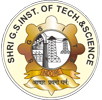|
Course Objectives of PH10006:PHYSICS (Common to all Branches in I Year B.Tech.) |
| CO1:To provide knowledge and understanding capacity of basic, applied and modern physics. CO2. To generate attitude and interest to solve problems at macro, micro to nanoscale level systems. CO3. To understand the classification and properties of both basic and applied physics at nanoscale systems. CO4. To update the knowledge of physics tools, instruments, and techniques incorporating human values and safety measures. CO5. To identify, conduct, formulate and solve engineering problems with the applied knowledge of Physics. |
|
Expected Outcome of the Course |
|
EO1: knowledge of multiphysics to understand and solve basic engineering problems. |
|
|
|
Program Outcomes (POs) |
| PO1. Scientific and Engineering knowledge: Apply the basic and advanced knowledge to complex engineering problems. PO2. Problem analysis: Identify, formulate, simulate and analyse the problems using modern optoelectronics, Photonics and optical communication techniques. PO3. Design/development of solutions: Interpret, design and develop own solutions independently to trivial and non-trivial problems. PO4. Conduct investigations of complex problems using modern experimental and computational skills. PO5. Modern tool usage & Ethics: Recognise the modern tools and learn to use them at right place as per the ethos of the country. |
|
Program Educational Objectives (PEOs) |
|
PEO1: pursue career in Industry with specific training for Quantum and Optical Computing industry |
|
Program Specific Outcomes (PSOs) |
| PSO1: Develop analytical ability and skills to interpret and solve various critical problems. PSO2: Learn knowledge in experimental and computational techniques and will be able to work independently for the problems in Research and Industry. PSO3: Acquire presentation skills to convince and disclose the ideas and or results confidently. PSO4: Compete successfully for employment opportunities |
3. M.Sc. (Applied Physics)
|
Program Outcomes (POs) |
| PO1. Scientific and Engineering knowledge: Apply the basic and advanced knowledge to complex scientific and engineering problems. PO2. Problem analysis: Identify, formulate, simulate and analyse the problems using modern Physics techniques. PO3. Design/development of solutions: Interpret, design and develop own solutions independently to trivial and non-trivial problems. PO4. Conduct investigations of complex problems using modern experimental and computational skills. PO5. Modern tool usage & Ethics: Recognise the modern tools and learn to use them at right place as per the ethos of the country. |
|
Program Educational Objectives (PEOs) |
|
PEO1: opt for higher studies in modern areas of physics. |
|
Program Specific Outcomes (PSOs) |
| PSO1: Develop analytical ability and skills to apply Physics to various critical problems. PSO2: Learn knowledge in experimental and computational techniques and will be able to work independently for the problems in Research and Industry. PSO3: Acquire presentation skills to convince and disclose the ideas and or results confidently. PSO4: Compete successfully for employment opportunities |


